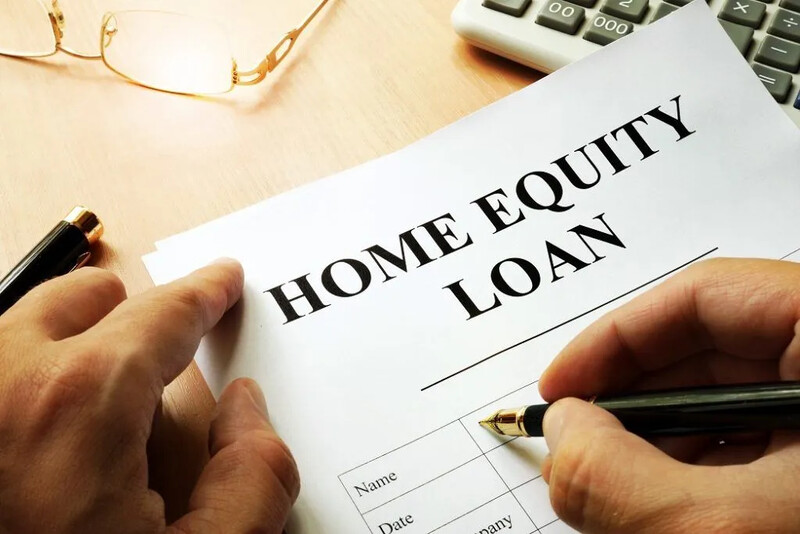Home equity loans are a well-liked financial service for people who own homes and want to utilize the value of their property. These loans enable homeowners to get money by using their home's equity as a form of security. In this article, we will explain what these types of loans are, how they function, the rates tied to them, and the requirements necessary to qualify for one.
How a Home Equity Loan Works?
A home equity loan is when a homeowner borrows money, usually in one big amount, using the equity they have in their house as security. Equity means the value of an asset after all debts or loans related to it are paid off (like a mortgage). Therefore, it's calculated by subtracting what you owe for your home from its current market price. These kinds of loans are often provided by lenders in the form of fixed-rate products that keep interest rates stable throughout the loan term. This regularity is helpful for budgeting plans since borrowers can predict that their monthly payments will remain the same.

The amount of loan a homeowner can borrow is typically decided by the loan-to-value (LTV) ratio. This LTV shows the portion of the home's appraised value that will be given as a loan. For example, if a lender gives an 80% LTV and your house is valued at $300,000, you might potentially borrow up to $240,000 after subtracting any present mortgage balance. This makes home equity loans suitable for important expenses like improving your house or paying off health costs or debts.
- Collateral: The home serves as collateral, which means defaulting can lead to foreclosure.
- Fixed Payments: Monthly payments remain stable, aiding in long-term financial planning.
Rates for Home Equity Loans
The interest rates for home equity loans can be affected by different things, like how good the borrower's credit score is, the amount of equity in their home, and what the current market interest rates are. Usually, people with better credit scores and more equity in their homes have a bigger chance of getting lower interest rates. The difference in rates from one lender to another can be quite big so borrowers must look around and compare offers carefully.
Normally, interest rates on home equity loans are steady and do not change. This is good because it helps you to know exactly how much you need to pay each month for your loan. But, occasionally lenders might give a different kind of loan called a home equity line of credit (HELOC) that has a variable rate. In contrast with fixed-rate loans where the interest rate stays constant throughout the repayment period, HELOC's interest rates can change over time based on market conditions or other factors agreed upon in advance by both parties involved, borrower and lender alike. Understanding the dissimilarities between these two types of loans is very important when deciding what type best suits your borrowing needs.
- Credit Impact: Higher credit scores generally secure better rates.
- Market Conditions: Prevailing interest rates significantly affect loan rates.
Requirements for Home Equity Loans
To be eligible for a home equity loan, you must fulfill the requirements of the lender. These can typically include having a certain level of equity in your house, having good credit, and earning a steady income. The debt-to-income (DTI) ratio of the borrower will be evaluated by lenders to check if they can handle more debt. A lower DTI ratio shows that the borrower possesses an acceptable quantity of prior debt about their earnings, which may improve the likelihood of approval.
Besides these money requirements, usually, the lender will ask for a property appraisal. This is to find out how much the home could sell in the current market and helps them know about available equity and set loan amount. People who want to borrow should be ready for possible fees linked with the application, assessment of property value, and closing process.
- Income Proof: Steady income documentation is crucial for approval.
- Appraisal Fees: Expect to pay for a professional home appraisal.
Benefits of Home Equity Loans
A big positive point about home equity loans is that you can get a good amount of money at a low-interest rate. This rate often remains the same throughout your loan term. In comparison to other types of loans like personal loans or credit cards, this is usually much cheaper. The fixed interest and predictable monthly payments might help borrowers to handle their money matters better.
One more good point is the chance for tax advantages. There might be situations where interest payment on a home equity loan can become tax-deductible, particularly if the money is utilized to enhance one's house. Those who borrow should speak with a tax consultant to comprehend what particular tax effects they may have according to their situation.
- Lower Rates: Generally lower than personal loans and credit cards.
- Tax Deductions: Possible tax benefits when used for home improvements.
Risks and Considerations

Even though there are many good sides to home equity loans, they also carry some risks. The main one is losing your house if you can't pay back what was borrowed. When a home is used as collateral for the loan, not making payments on time could result in foreclosure. Those who borrow must think deeply about their capacity to pay back the loan and think of other ways to fund it if there's some doubt.
Another point to think about is how it affects the borrower's total money situation. By adding more debt, there comes an increase in monthly financial load that could alter their capability to borrow in future times. Homeowners must study the advantages and disadvantages, thinking about their financial plans for the long term before they choose to get a home equity loan.
- Foreclosure Risk: Failure to repay can result in losing your home.
- Debt Impact: Additional debt can affect future borrowing potential.
Choosing the Right Lender
To choose the best lender for a home equity loan, it is important to review different lenders. This involves researching various options and comparing interest rates and fees along with the terms of the agreement. Additionally, reading customer reviews may help in making sure that you select a trustworthy lender. It's also beneficial to work with someone who has clear conditions and provides good service for customers - this can help make the process of borrowing easier and more manageable.
Getting advice from financial experts or mortgage brokers is another way to gain useful understanding and support borrowers in making knowledgeable choices. They can assist with the application procedure, offering advice according to the borrower's fiscal condition and requirements.
- Transparency: Look for lenders that offer clear, upfront terms.
- Professional Advice: Consult with financial advisors for personalized guidance.
Conclusion
To sum up, home equity loans are a useful financial aid for houseowners who require access to large sums of money. By comprehending the method in which these loans function, the rates they carry along with them, and what is needed to be eligible one can assist borrowers in making well-thought-out choices when utilizing their home equity. The article gives an overview of important points about home equity loans, helping people who own homes feel more confident when considering this monetary choice.




